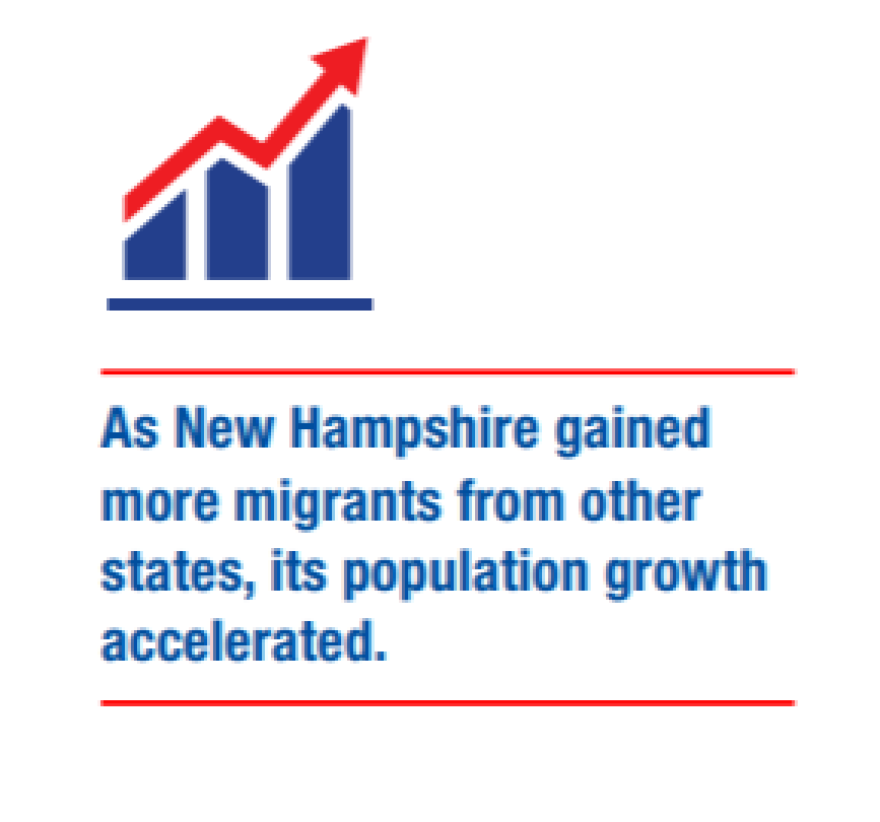New Hampshire Public Radio kicked off a news series, The Balance, last week. It looks at the costs, benefits and tradeoffs of life in New Hampshire, including why people move to -- or out of -- the state. Last year, New Hampshire saw its biggest population increase since before the Great Recession. Here to talk about what's behind that trend, is Ken Johnson, senior demographer with UNH's Carsey School.
This apparently is the largest population gain for New Hampshire since 2005 and migration from other states accounted for nearly all that growth. Where are they coming from specifically?

We don't know the details of where they're coming from right now but mostly they come from Massachusetts and if they're not coming from Massachusetts, a fair number come from elsewhere in New England. We also have a moderate number of immigrants to the state as well. So most of the growth is fueled by net migration and the largest part of that migration is domestic migrants -- people coming from elsewhere in the United States. And then we have a modest number, about 2,000 or 2,300, immigrants coming to New Hampshire from elsewhere in the world.
And how would that compared to previous decades?
That's a good question. If you were comparing it to the 1980s or 1990s New Hampshire would have received a substantially larger number of domestic migrants than it did

last year. But compared to how the situation was in the early part of the 2000s like in 2008 or 2009, at that point New Hampshire was actually losing domestic migrants. More people were moving out of New Hampshire to other states and moving in. And that's very unusual and New Hampshire's recent history.
We hear about this all the time in northern New England Delaware Vermont New Hampshire Maine you know specific states that have been losing population or graying at least. What does this migration gain or what is this influx mean for New Hampshire?
New Hampshire typically receives people in their 30s and 40s as migrants into the state and most of them are particularly well educated. And so these are primarily family age migrants moving into this state, well-educated -- and given the shortages of labor in the state and the need for skilled workers, probably these are an advantage to the state to have migrants moving in again.
Do we know why they're moving here - why are they coming to New Hampshire? So what are the contributing factors to this?
Well, the trends in New Hampshire are similar to trends elsewhere in the United States and that is that the states that traditionally would have received significant number of migrants like New Hampshire received considerably fewer during the recession and the aftermath of the recession. The population during the recession was essentially frozen in place and so states like New Hampshire, which tended to get migrants, didn't get as many. In the last couple years in New Hampshire and elsewhere in the United States, the states that traditionally have received substantial inflows of domestic migrants are beginning to receive more migrants again, whereas the states like Massachusetts, which typically loses domestic migrants to other states, is starting to lose more again. So it's as if the trends are shifting back to the patterns that were evident before the recession.
Is that a cyclical pattern though have we seen that and in decades past?
To some extent, although the Great Recession of 2007 through 2010 had a dramatically greater effect on migration patterns in the United States than any previous migration except for the Great Depression itself in the 1930s.








